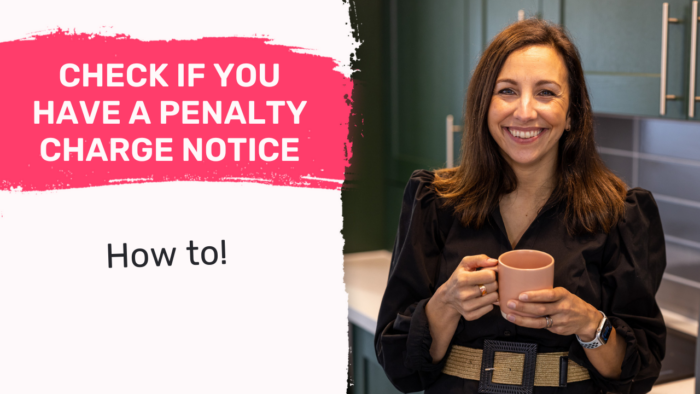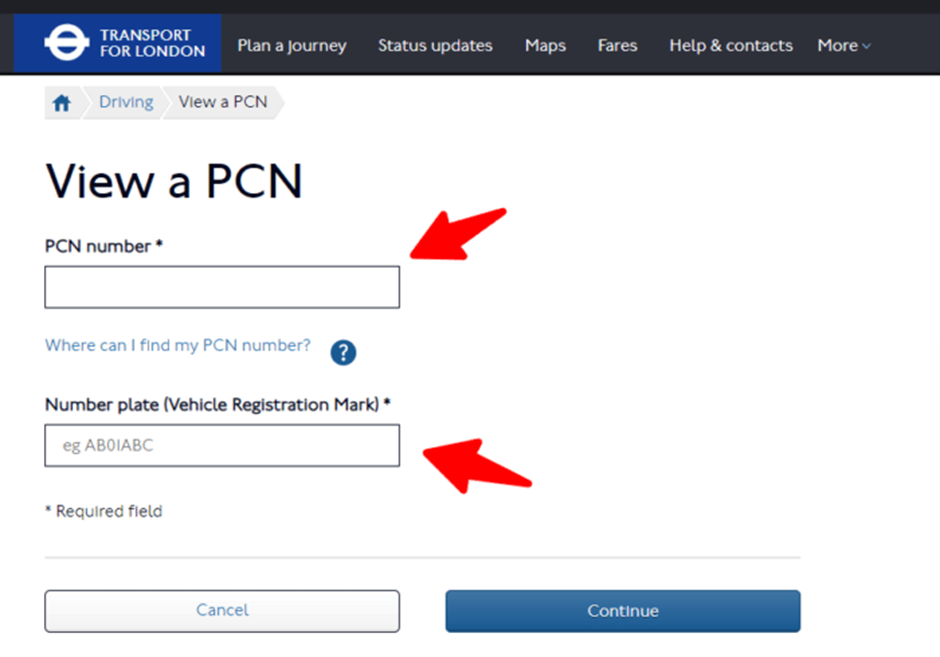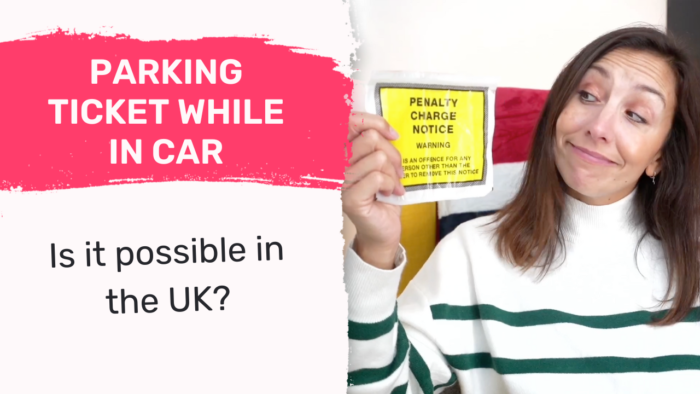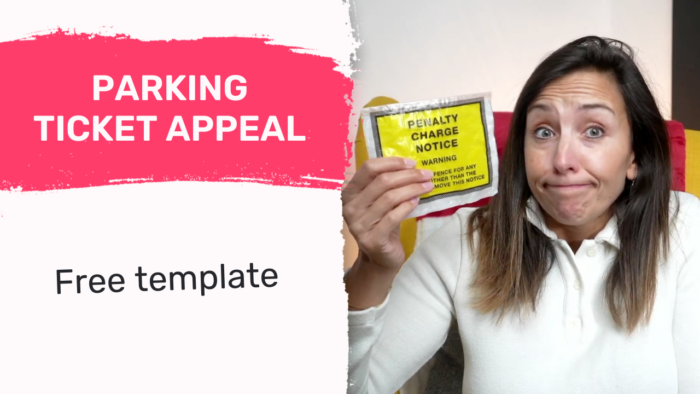How to Check if You have a Penalty Charge Notice

Do you need to find out if you have a Penalty Charge Notice (PCN)? This page is visited by over 32,000 people each month, all looking for answers about tickets and fines. It’s easy to worry, especially if you’re not sure about what a PCN is or how to deal with it.
This article will help you understand:
- What a Penalty Charge Notice is and why you might get one.
- The steps to take to check if you have a PCN.
- How to challenge a PCN if you think it’s wrong.
- The process to follow if you want to appeal a PCN.
- What can happen if a PCN is left unpaid.
Our team knows how you feel, and we’re here to help. Just take a moment, relax, and read on. We’ll explain everything you need to know about how to check if you have a Penalty Charge Notice.
Most Ticket Appeals Succeed
In some circumstances, you might have a legitimate reason not to pay your fine.
It’s a bit sneaky, but the last time I needed legal advice, I paid £5 for a trial to chat with an online solicitor called JustAnswer.
Not only did I save £50 on solicitor feeds, I also won my case and didn’t have to pay my £271 fine.
Chat below to get started with JustAnswer
*According to Martin Lewis, 56% of people who try to appeal their ticket are successful and get the charge overturned, so it’s well worth a try.
Why would you get a Penalty Charge Notice?
Penalty Charge Notices are typically issued when you commit minor offences. That said, you could get a PCN for littering which is a criminal offence in the UK!
The most common reasons why you’d get a PCN are listed below:
- Minor driving offences such as breaking certain traffic rulesParking infringements for example overstaying the time paid for on a metre
- Littering and other offences
How do you check a Penalty Charge Notice?
You can check a Penalty Charge Notice online with most local authorities. Their online portals allow you to check the status of your PCN.
I’ve included an example of how to do this through the Transport for London’s online portal here:

Source: Transport for London website
As you can see all you need to do is provide the Penalty Charge Notice number together with your vehicle registration number (VRN) to retrieve the relevant info.
It’s worth noting that most authorities use the same method for motorists to check the status of a Penalty Charge Notice.
What can you check about a PCN?
It’s important to check several things when you look up the details of a Penalty Charge Notice you got. This applies whether you’re given the PCN or the fine arrived through the post.
I’ve listed the things you should check here:
- The date the Penalty Charge Notice was issued which allows you to calculate how long you have before you have to pay and whether the PCN was sent within the deadline
- Whether the details on the PCN are correct. For example, does the notice contain the right name, address and contact information. If any of the details are incorrect, you could have grounds to appeal the charge
- The reason why the PCN was issued. This allows you to determine whether you committed an offence or not. In short, was the Penalty Charge issued unfairly?
Successful Appeal Case Study
Situation
| Initial Fine | £100 |
| Additional Fees | £171 |
| Total Fine | £271 |
The Appeal Process
Scott used JustAnswer, online legal service to enhance his appeal. The trial of this cost him just £5.
| Total Fine | £271 |
| Cost of legal advice | £5 |
JustAnswer helped Scott craft the best appeal possible and he was able to win his case.
Scott’s fine was cancelled and he only paid £5 for the legal help.
In partnership with Just Answer.
Can you check whether a payment was made?
You can also check other things which are just as important. This includes:
- Whether a payment you made to settle the charge was received
- If you filed an appeal against the PCN, you could check the status of your appeal
When you make an online payment with a credit card to settle the PCN, it goes through immediately. In short, you know the fine is paid straight away.
However, it’s always wise to check whether the payment went through when you pay over the phone or by cheque. If the payment is still ‘pending’, it means the payment is still being processed.
What happens when a PCN shows unpaid?
There are times when a payment you make to settle a Penalty Charge Notice takes longer than it should. For example, if you pay by cheque, it can take up to 10 days for the payment to show as ‘received’.
When you pay for a PCN over the phone, it typically shows as ‘paid’ the next working day.
You should check your bank statement to make sure the payments were debited from your account. If there’s a dispute, you have proof you paid!
What if a PCN contains the wrong details?
You may find that your name is misspelt or the date is incorrect when you check the details on a PCN online. If so, it’s not too much of an issue.
But if the details of the offence itself are wrong or the PCN was issued incorrectly, you could have grounds to challenge the fine!
Join thousands of others who got legal help for a £5 trial
Getting the support of a Solicitor can take a huge weight off your mind.
Reviews shown are for JustAnswer.
How do you challenge a Penalty Charge Notice?
UK law states that the issuer must prove you committed an offence that merited getting a Penalty Charge Notice. In short, the issuer must prove you didn’t obey the rules whether it’s a parking violation, driving offence or other types of infringement.
It’s your right to challenge a PCN provided you can back up your request to have the fine cancelled. However, there’s a process to follow when you challenge a Penalty Charge Notice.
For example, you must provide valid reasons for challenging the Penalty Charge Notice. Plus you should provide as many details as possible.
But you should only send copies of the evidence you have which could include documents that support your challenge. Plus, it’s a good idea to use an appeals template to ensure you provide the right information.
What is the process to appeal a PCN?
You have 14 days to file an informal appeal against a PCN if you believe it was issued unfairly or incorrectly.
You’d get a Notice to Owner (NTO) if your appeal is rejected in which case, you’d have 28 days to settle the fine.
But you have the right to escalate things by making a ‘formal appeal’ known as a ‘representation’.
It depends on where the PCN was issued as to who deals with the formal appeal. In short, it could be any of the following:
- London Tribunals – for London
- Traffic Penalty Tribunal – for England and Wales
- Scottish Parking Appeals Service – for Scotland
- Northern Ireland Traffic Penalty Tribunal – for Northern Ireland
Is the appeals process regulated?
Yes. The civil appeals process for Penalty Charge Notices is regulated. Plus a Penalty Charge Notice could be cancelled at any stage of the process.
According to the AA success rates are as follows:
- That around 1% of Penalty Charge Notices achieve a formal appeal stage
- About half of these appeals are successful
- The most common reason for appeal are issues with signs and lines
- CCTV often records incorrect information that results in PCNs being wrongly issued
When the issuer knows a PCN was incorrectly issued, it should be cancelled promptly.
Hire a Parking Solicitor for less than a coffee.

If you’re thinking about appealing your parking ticket then getting some professional advice is a good idea.
Getting the support of a Solicitor can make your appeal much more likely to win.
For a £5 trial, Solicitors from JustAnswer can look at your case and help you create an airtight appeal.
In partnership with Just Answer.


